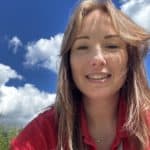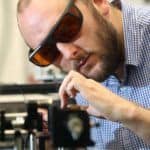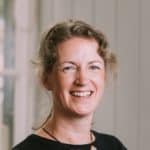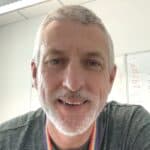Profile
Rhanna Turberville
-
About Me:
I live on the Shetland Islands, as far in the North of Scotland as you can go. I work as a biologist looking after the health and welfare of around 4 million salmon. I love growing my own food and looking after my pet ferrets and chickens.
-
Read more
I love to try to grow my own food where I can. As I live so far North, we have very long days in the summer and short days in the winter. To help grow food I have a polytunnel which helps to warm and protect my crops.
I have 7 chickens, who love to explore my garden – and occasionally my neighbours gardens too! They produce lovely tasty eggs which are excellent in cakes and omelettes!
I also have 5 pet ferrets. Ferrets make great pets as they sleep for around 20 hours a day and love to have fun. They have their own room in my house and come out to make lots of mischief when I get home in the evenings.
I enjoy living in Shetland – it is wild and sometimes very windy, but always beautiful. I love living and working around the sea. I get to see whales, sea birds and otters on a regular basis through my work.
-
My pronouns are:
She/Her
-
My Work:
I am a biologist looking after the Health and Welfare of around 4 million salmon in the very North of Scotland. I make sure they are fit any healthy and investigate any concerns if they occur.
-
Read more
We can have up to 25 marine farms around Shetland which might have tiny 100g fish or great big 8kg fish. Typically the fish spend around 18 months in the sea water phase of their life. It’s my job to look after them during their time at sea.
I visit each sea site around once every month or so to have a look at the salmon to see how they’ve grown and checking up on the health of the population. Gills – the organ which helps the fish to breathe – are one of the most important organs in all fish. Unlike humans lungs, fish gills are open to the environment so can be damaged by things in the water like plankton and jellyfish.
I spend my mornings looking at the fish to check over gills, skin condition and any other health concerns. In the afternoons I write reports on what I’ve seen and look at all the data that we collect on our fish.
-
Education:
I went to my local primary and secondary school, the school was around 5 miles from my parents house.
After I left school I decided to study Chemistry at university. I moved to Edinburgh to attend university, but I didn’t like the course and left after a month. I moved back home and worked in a hotel for the rest of that year.
The following year I applied to study Forensic Science with Law at Robert Gordon University. I loved the course and finished three years later with a bachelors degree in the same subject.
All the different topics covered in my forensic degree helped to bring some new ideas to my current job. It is not always the case that you are stuck with one type of job after study. Many of the skills you learn at university, college or through apprenticeships are transferrable.
My advice is to find something to study that you enjoy!
-
Work History:
Fish Health Biologist – Scottish Sea Farms
Fish Health Technician – Grieg Seafood
Water Quality Technician – Grieg Seafood
Head Brewer – Lerwick Brewery
Medical Laboratory Assistant – NHS Shetland
Front of House – Sumburgh Hotel
Weekend Cleaner – Sumburgh Hotel
-
Current Job:
Fish Health and Welfare Manager
-
Employer:
Scottish Sea Farms
-
My Interview
-
How would you describe yourself in 3 words?
Fun-loving islander biologist
What did you want to be after you left school?
I didn't know - I've never known exactly what I wanted to do.
Were you ever in trouble at school?
I got on well with most of my teachers, however there were one of two that I didn't get on with.
If you weren't doing this job, what would you choose instead?
I'm not sure. I'm always up for a challenge, so would give anything a go!
Who is your favourite singer or band?
Pink Floyd
What's your favourite food?
Chocolate cake
-






